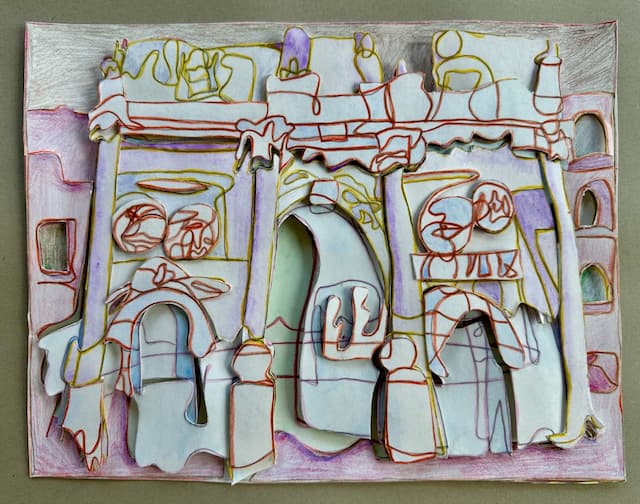Journey Through 1 Samuel
As we begin our journey through 1 Samuel, consider that there are stages in life, and there are stages in nations. Israel is a classic example of this. The period known in Israel’s history as the Judges is one of their darkest stages. Remember, the two preceding books of the Bible, the Book of Judges and the Book of Ruth, detail that particular period. Interestingly, the last word in the book of Ruth is the name David.
That is very significant because it bridges the gap into the next chapter in Israel’s history. This stage is not known as the Judges; it is the time of the Kings. Several books in the Old Testament historical section deal with this era. As a matter of fact, there are three what we would call double books: First and Second Samuel, First and Second Kings, and First and Second Chronicles.
Originally, at least for the Jews, these were each one book. They called them the Book of Samuel, the Book of Kings, the Book of Chronicles. They comprise a large portion of our Bible. We come to the first of these double books–1 Samuel. Appropriately, this book comes immediately after the name David in the Book of Ruth, because 1 Samuel details for us the rise of “the man after God’s own heart“–King David.
Listen: Journeying through 1 Samuel
Overview of Our Journey through 1 Samuel
1 Samuel opens with a sweeping transition in Israel. They move from a Theocracy — God Himself ruling over his people, to a Monarchy — God, still on the throne of the universe, but ruling and reigning in Israel through a human king. It’s an amazing transition.
The human author of the book is its namesake, Samuel. Samuel was the first man known during the era of the prophets. While Moses is referred to as a prophet, the New Testament record identifies Samuel as beginning the time of the prophets in the Old Testament (Acts 3:24). He was not only the first prophet, but he was the final judge. Samuel serves to usher in the transition between these two systems, these two eras.
We believe that Samuel wrote this book right before his death, and that the books of Samuel were compiled near the end of David’s life, since that is where they leave off. We learn this in our journey through 2 Samuel. 1 Samuel covers about 94 years of history, beginning with the birth of Samuel and ending with the death of Saul.
Begin with Prayer
It’s wonderful how this book begins; it opens with a prayer. That is how everything should begin today. Begin your day with prayer. Begin every task with prayer. Approach every appointment with prayer.
That is the way this period begins, with a woman — not a man, not the king, but a praying woman. A mother praying that God will give her a son. God hears and answers prayers (see 1 Samuel 1-2). And God answered Hannah’s prayer, and God gave a man by the name of Samuel, a prophet, a preacher unlike any the world has known. As a matter of fact, the Bible says that God “let none of his words fall to the ground” (1 Samuel 3:19). One example of that is the fact that we are studying 1 Samuel today. These are the very words of Samuel given by inspiration of the Holy Spirit and continuing to minister to us at this very juncture. God preserved them.
The Message of 1 Samuel
We see many great truths as we journey through 1 Samuel. Do not miss the great message of the book. It is not just history; it is personal and needed for us today. The great message of the book is man’s rejection of God and God’s rejection of man.
The Reign of King Saul
You see, the reason they even had a king was because they rejected God ruling over them. So God gave them what they wanted. Be careful what you ask for. Sometimes, the more you get what you want, the less you want what you get. Israel rejected God’s rule, and God gave them a ruler. His name was King Saul.
Saul had a good start, but a tragic end. You see, when Saul rejected the Lord, when Saul sought his own way, when Saul became his own king, instead of looking to the King of kings and the Lord of lords, at that moment God rejected him. Then, God sought a man after His “own heart” (1 Samuel 13:14).
That’s really the message of the book of First Samuel: it is a book about kings, but specifically the first two kings. Consider 1 Samuel 10:25. Samuel speaks to the people about the kingdom. The Bible says, “Then Samuel told the people the manner of the kingdom, and wrote it in a book, and laid it up before the Lord. And Samuel sent all the people away, every man, to his own house.”
God is the King
God’s intention from the beginning was to rule over His people. God never intended that a man would be the ruler, that men would make all the decisions. No, the Lord wants to be our King. Yet, though the people of Israel had centuries of that, they thought they had had enough of that.
The Bible says that He, God, wanted to continue ruling over them, but they wanted a king like all the other nations (1 Samuel 8:6). Isn’t that one of the great temptations today? The desire to rule and to reign ourselves and be like everyone else? This is never God’s way. So, God gave them exactly what they wanted. If you come to 1 Samuel 13:14, you find the transition from the first king to the second, from a king who wanted to rule in his own way to a king who was willing to reign under God’s rule.
King David
1 Samuel 13:14 says, God speaking to King Saul, “But now thy kingdom shall not continue. The Lord has sought him a man after his own heart. And the Lord hath commanded him to be captain over his people, because now is not kept that which the Lord commanded thee.” Isn’t that a beautiful phrase, “a man after God’s own heart?”
By the way, God repeats that statement in Acts 13:22. Why is that significant? Because even after David’s failure, even after he sinned with Bathsheba, even after he committed such a terrible act against Uriah, even after all of that, we remember David as the man after God’s own heart. Why is that? Though David was a sinner like all of us, David, in his heart, truly desired to be right with God. He truly desired to do what God, the rightful King, wanted done. He gave his all to God.
Who is Ruling Your Life?
As we conclude our journey through 1 Samuel, I wonder today, are you ruling your own life? I wonder today, are you allowing someone else to rule over you? Or are you living today in God’s ruling presence? You see, G. Campbell Morgan made this statement. He said, “The beautiful truth of the man after God’s own heart is that God doesn’t remember you by your most recent sin; instead, he remembers you by the state of your soul.”
I love that thought. You see, most men are marked by one great sin they think they can never get over. But God looks deeper than all of that, just as surely as at the beginning of David’s life. At the end of his life, man still looked on the outward appearance, but the Lord looked on the heart.
My friend, when God looks on your heart today, what does He see? In the kingdom, that is your soul; in the nation, that is your heart; who’s sitting on the throne today? Who’s ruling and who’s reigning? Because I’ll tell you what he’s looking for. He’s not looking for a soul, somebody with all the answers, or for someone who wants to make all the decisions and run ahead of the Lord. He’s looking for a David — for someone tender to God. Not perfect, but tender and open to the ruling presence of the Lord Jesus Christ. And the great message of First Samuel to all of us is this Lord, help me today to become a man or a woman after God’s own heart.
Related Article: 5 Ways to Get More Out of Your Bible Reading
Discover more from Enjoying the Journey
Subscribe to get the latest posts sent to your email.








